�
Image Fusion
This
page
intentionally
left
blank
�
Image Fusion: Algorithms and
Applications
Edited by
Tania Stathaki
Amsterdam • Boston • Heidelberg • London • New York
Oxford • Paris • San Diego • San Francisco • Singapore
Sydney • Tokyo
Academic Press is an imprint of Elsevier
�
Academic Press is an imprint of Elsevier
84 Theobald’s Road, London WC1X 8RR, UK
Radarweg 29, PO Box 211, 1000 AE Amsterdam, The Netherlands
30 Corporate Drive, Suite 400, Burlington, MA 01803, USA
525 B Street, Suite 1900, San Diego, CA 92101-4495, USA
First edition 2008
Copyright © 2008 Elsevier Ltd. All rights reserved.
No part of this publication may be reproduced, stored in a retrieval system or transmitted in any form or by any
means electronic, mechanical, photocopying, recording or otherwise without the prior written permission of the
publisher
Permissions may be sought directly from Elsevier’s Science & Technology Rights Department in Oxford, UK:
phone: (+44) (0) 1865 843830; fax: (+44) (0) 1865 853333; email: permissions@elsevier.com. Alternatively
you can submit your request online by visiting the Elsevier web site at http://elsevier.com/locate/permissions,
and selecting Obtaining permission to use Elsevier material
Notice
No responsibility is assumed by the publisher for any injury and/or damage to persons or property as a matter of
products liability, negligence or otherwise, or from any use or operation of any methods, products, instructions
or ideas contained in the material herein. Because of rapid advances in the medical sciences, in particular,
independent verification of diagnoses and drug dosages should be made
Library of Congress Cataloging-in-Publication Data
A catalog record for this book is available from the Library of Congress
ISBN: 978-0-12-372529-5
British Library Cataloguing-in-Publication Data
A catalogue record for this book is available from the British Library
For information on all Academic Press publications
visit our web site at www.books.elsevier.com
Printed and bound in Great Britain
08 09 10 10 9 8 7 6 5 4 3 2 1
�
Contents
Preface
List of contributors
1 Current trends in super-resolution image reconstruction
Antonis Katartzis and Maria Petrou
1.1
Introduction..................................................................................................
1.2 Modelling the imaging process....................................................................
1.2.1 Geometric transformation models....................................................
1.2.2 Image degradation models ...............................................................
1.2.3 Observation model – Mathematical formulation .............................
1.3 State-of-the-art SR methods.........................................................................
1.3.1 Frequency domain methods .............................................................
1.3.2 Projection Onto Convex Sets (POCS)..............................................
1.3.3 Bayesian/variational methods ..........................................................
1.3.4 Interpolation-based approaches .......................................................
1.4 A new robust alternative for SR reconstruction ...........................................
1.4.1 Sub-pixel registration.......................................................................
1.4.2 Joint Bayesian registration/reconstruction.......................................
1.5 Comparative evaluations ..............................................................................
1.6 Conclusions..................................................................................................
Acknowledgements...............................................................................................
References.............................................................................................................
2 Image fusion through multiresolution oversampled decompositions
Bruno Aiazzi, Stefano Baronti and Massimo Selva
2.1
Introduction..................................................................................................
2.2 Multiresolution analysis...............................................................................
2.2.1 Fundamental principles....................................................................
2.2.2 Undecimated discrete wavelet transform.........................................
2.2.3 Multi-level decomposition of wavelet transforms ...........................
2.2.4 Translation-invariant wavelet decomposition of a 2-D image .........
2.2.5
‘À trous’ wavelet decomposition of an image..................................
2.2.6 Laplacian pyramid ...........................................................................
2.3 MTF-tailored multiresolution analysis ........................................................
2.4 Context-driven multiresolution data fusion .................................................
2.4.1 Undecimated wavelet-based data fusion scheme.............................
2.4.2 Pyramid-based data fusion scheme..................................................
v
xiii
xv
1
1
2
3
4
6
7
7
9
11
13
14
15
15
19
21
22
23
27
27
30
30
33
33
34
36
38
40
41
43
44
�
vi
Contents
2.4.3 ‘À trous’ wavelet data fusion scheme ..............................................
2.4.4 Enhanced Spectral Distortion Minimising (ESDM) model .............
2.4.5 Enhanced Context-Based (ECB) model...........................................
2.5 Quality..........................................................................................................
2.5.1 Quality assessment of fusion products.............................................
2.5.2 Quality indices .................................................................................
2.6 Experimental results.....................................................................................
2.6.1 Data set and compared methods ......................................................
2.6.2 Performance comparison on QuickBird data...................................
2.6.3 Performance comparison on Ikonos data.........................................
2.7 Concluding remarks.....................................................................................
Acknowledgements...............................................................................................
References.............................................................................................................
3 Multisensor and multiresolution image fusion using the linear mixing
model
Jan G.P.W. Clevers and Raul Zurita-Milla
3.1
Introduction..................................................................................................
3.2 Data fusion and remote sensing ...................................................................
3.3 The linear mixing model..............................................................................
3.4 Case study ....................................................................................................
3.4.1 Introduction......................................................................................
3.4.2 Study area and data ..........................................................................
3.4.3 Quality assessment...........................................................................
3.4.4 Results and discussion .....................................................................
3.5 Conclusions..................................................................................................
References.............................................................................................................
46
47
48
48
48
50
52
52
54
57
62
63
63
67
67
69
70
73
73
73
74
76
81
81
85
4 Image fusion schemes using ICA bases
Nikolaos Mitianoudis and Tania Stathaki
4.1
4.2
85
Introduction..................................................................................................
88
ICA and Topographic ICA bases .................................................................
88
4.2.1 Definition of bases ...........................................................................
92
4.2.2 Training ICA bases ..........................................................................
93
4.2.3 Properties of the ICA bases..............................................................
95
4.3
Image fusion using ICA bases .....................................................................
96
4.4 Pixel-based and region-based fusion rules using ICA bases........................
97
4.4.1 A Weight Combination (WC) pixel-based method..........................
97
4.4.2 Region-based image fusion using ICA bases...................................
98
4.5 A general optimisation scheme for image fusion .......................................
4.5.1 Laplacian priors ...............................................................................
99
4.5.2 Verhulstian priors............................................................................. 100
4.6 Reconstruction of the fused image............................................................... 102
4.7 Experiments ................................................................................................. 105
4.7.1 Experiment 1: Artificially distorted images..................................... 106
4.7.2 Experiment 2: Out-of-focus image fusion ...................................... 108
4.7.3 Experiment 3: Multi-modal image fusion........................................ 109
�
Contents
vii
4.8 Conclusion ................................................................................................... 111
Acknowledgements............................................................................................... 115
References............................................................................................................. 116
5 Statistical modelling for wavelet-domain image fusion
119
Alin Achim, Artur Łoza, David Bull and Nishan Canagarajah
5.1
Introduction.................................................................................................. 119
5.2 Statistical modelling of multimodal images wavelet coefficients................ 121
5.2.1 Heavy-tailed distributions ................................................................ 121
5.2.2 Modelling results of wavelet subband coefficients .......................... 124
5.3 Model-based weighted average schemes ..................................................... 125
5.3.1 Saliency estimation using Mellin transform .................................... 128
5.3.2 Match measure for SαS random variables: The symmetric
covariation coefficient...................................................................... 131
5.4 Results.......................................................................................................... 132
5.5 Conclusions and future work ....................................................................... 135
Acknowledgements............................................................................................... 136
References............................................................................................................. 136
6 Theory and implementation of image fusion methods based on the á trous
139
algorithm
Xavier Otazu
6.1
6.2
Introduction.................................................................................................. 139
6.1.1 Multiresolution-based algorithms .................................................... 140
Image fusion algorithms .............................................................................. 141
6.2.1 Energy matching .............................................................................. 141
6.2.2 Spatial detail extraction. The à trous algorithm............................... 142
6.2.3 Spatial detail injection...................................................................... 144
6.3 Results.......................................................................................................... 150
Acknowledgements............................................................................................... 153
References............................................................................................................. 153
7 Bayesian methods for image fusion
157
Jürgen Beyerer, Michael Heizmann, Jennifer Sander and Ioana Ghe¸ta
7.1
Introduction: fusion using Bayes’ theorem.................................................. 158
7.1.1 Why image fusion? .......................................................................... 158
7.1.2 Three basic requirements for a fusion methodology........................ 160
7.1.3 Why Bayesian fusion? ..................................................................... 162
7.2 Direct application of Bayes’ theorem to image fusion problems ................ 163
7.2.1 Bayesian solution of inverse problems in imaging .......................... 163
7.2.2 Bayesian image fusion exemplified for Gaussian distributions ....... 165
7.2.3 Bayes estimators .............................................................................. 167
7.2.4 Multi-stage models........................................................................... 170
7.2.5 Prior modelling ................................................................................ 171
7.3 Formulation by energy functionals .............................................................. 173
7.3.1 Energy terms .................................................................................... 174
7.3.2 Connection with Bayes’ methodology via Gibbs’ distributions ...... 178
�
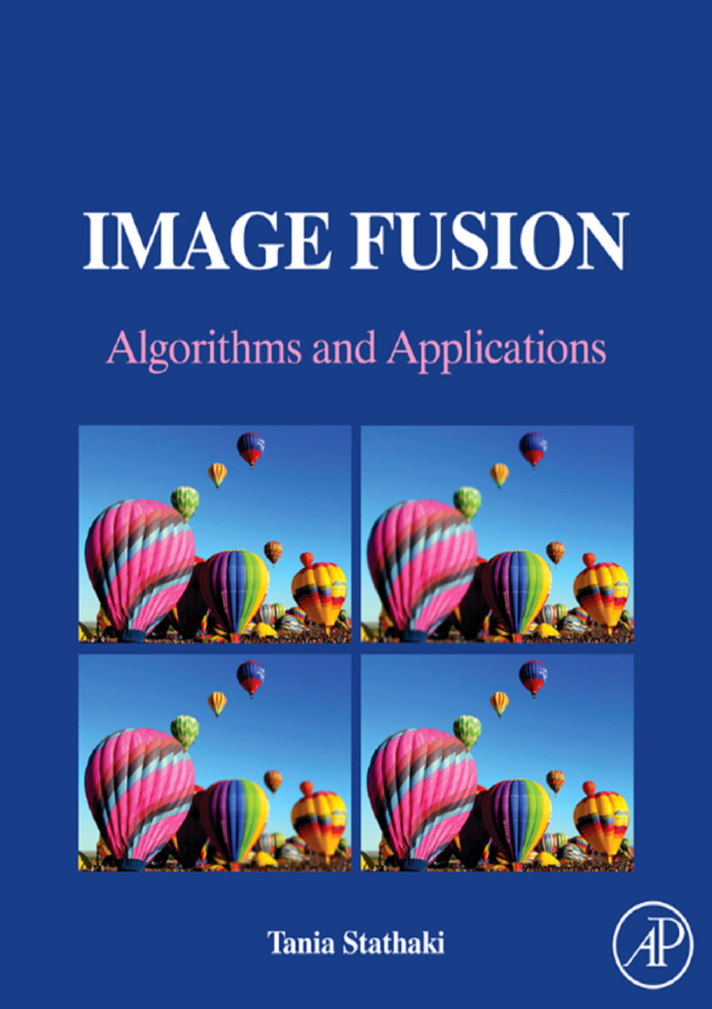


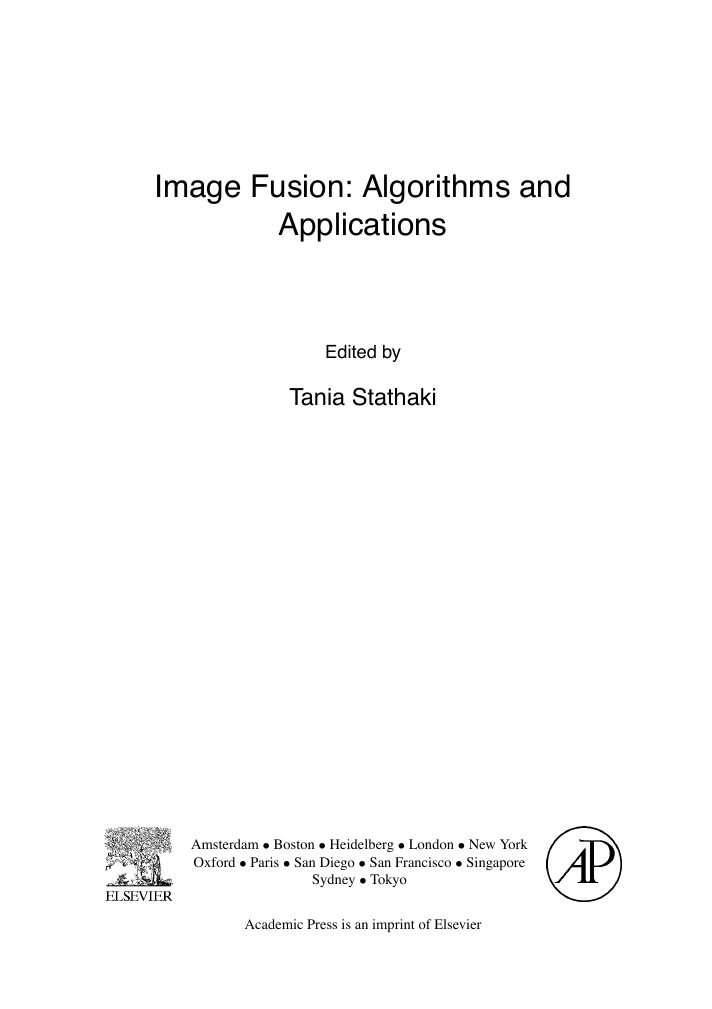
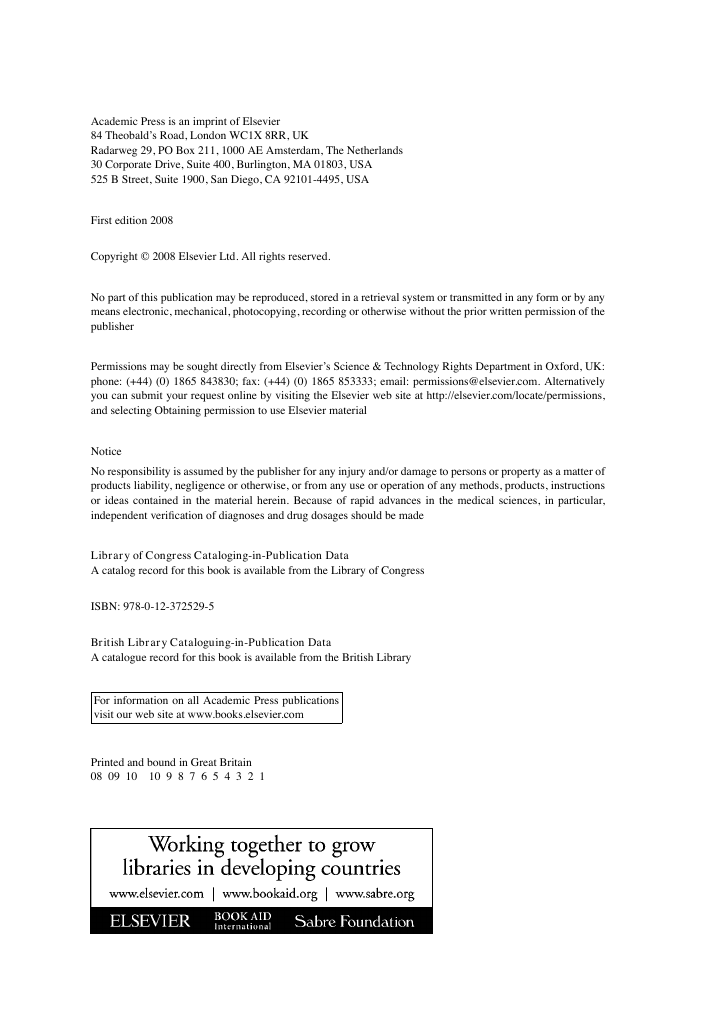
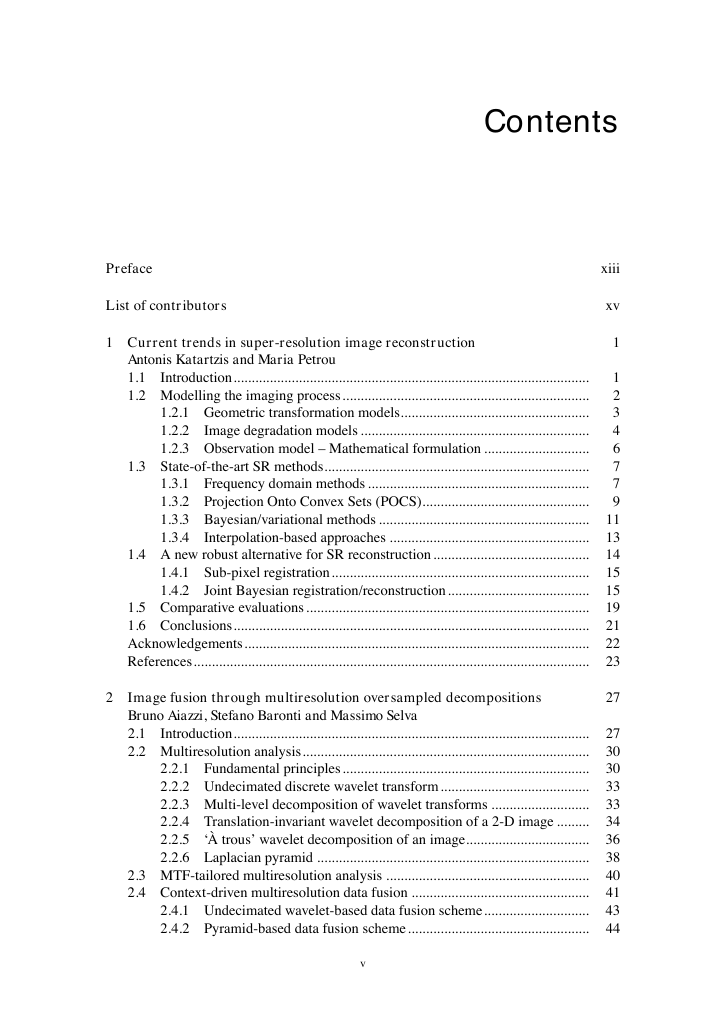

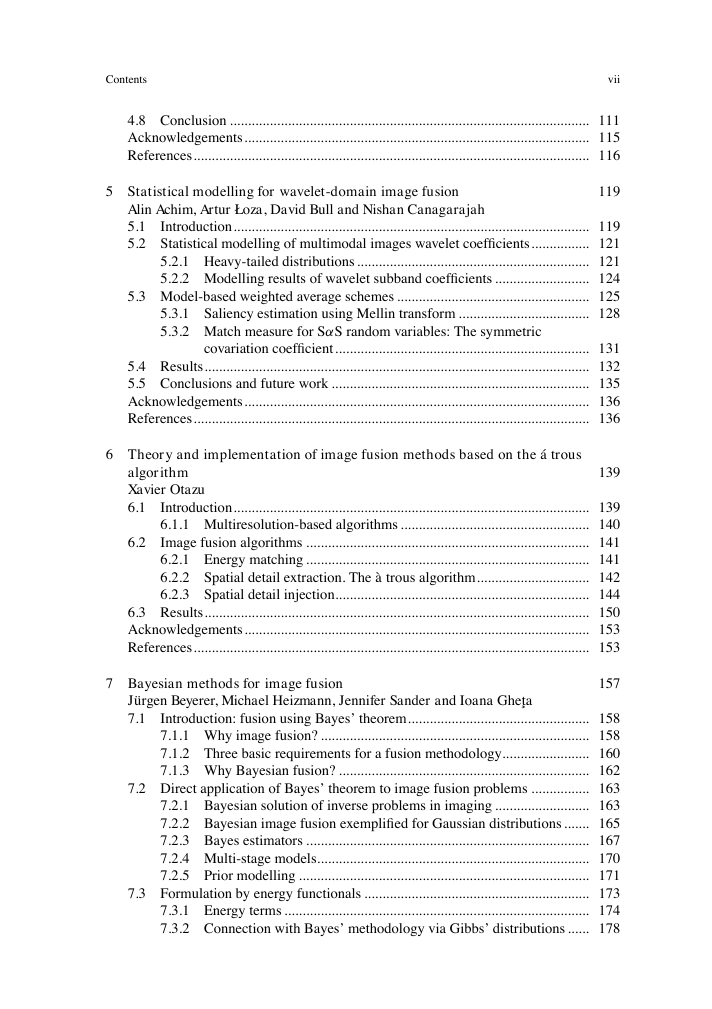








 2023年江西萍乡中考道德与法治真题及答案.doc
2023年江西萍乡中考道德与法治真题及答案.doc 2012年重庆南川中考生物真题及答案.doc
2012年重庆南川中考生物真题及答案.doc 2013年江西师范大学地理学综合及文艺理论基础考研真题.doc
2013年江西师范大学地理学综合及文艺理论基础考研真题.doc 2020年四川甘孜小升初语文真题及答案I卷.doc
2020年四川甘孜小升初语文真题及答案I卷.doc 2020年注册岩土工程师专业基础考试真题及答案.doc
2020年注册岩土工程师专业基础考试真题及答案.doc 2023-2024学年福建省厦门市九年级上学期数学月考试题及答案.doc
2023-2024学年福建省厦门市九年级上学期数学月考试题及答案.doc 2021-2022学年辽宁省沈阳市大东区九年级上学期语文期末试题及答案.doc
2021-2022学年辽宁省沈阳市大东区九年级上学期语文期末试题及答案.doc 2022-2023学年北京东城区初三第一学期物理期末试卷及答案.doc
2022-2023学年北京东城区初三第一学期物理期末试卷及答案.doc 2018上半年江西教师资格初中地理学科知识与教学能力真题及答案.doc
2018上半年江西教师资格初中地理学科知识与教学能力真题及答案.doc 2012年河北国家公务员申论考试真题及答案-省级.doc
2012年河北国家公务员申论考试真题及答案-省级.doc 2020-2021学年江苏省扬州市江都区邵樊片九年级上学期数学第一次质量检测试题及答案.doc
2020-2021学年江苏省扬州市江都区邵樊片九年级上学期数学第一次质量检测试题及答案.doc 2022下半年黑龙江教师资格证中学综合素质真题及答案.doc
2022下半年黑龙江教师资格证中学综合素质真题及答案.doc